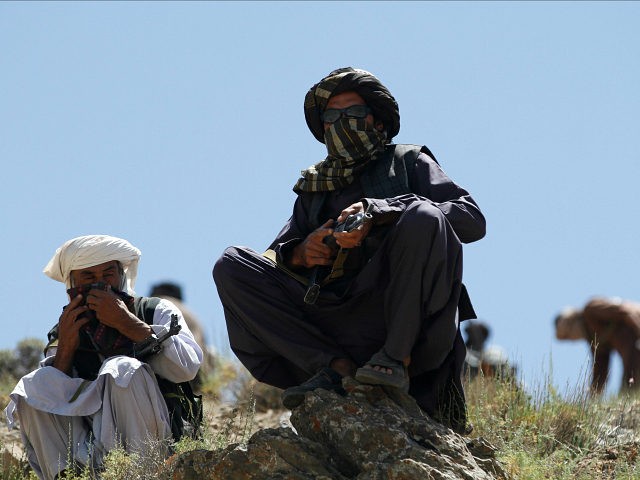The relationship between al-Qaeda and the Taliban, the jihadi allies behind the 9/11 attacks on the American homeland, “remains firm” nearly 17 years after the United States declared war on the two terrorist groups in Afghanistan, the United Nations recently reported.
In a new report, the U.N. determined that al-Qaeda (or al-Qaida) is “much stronger” than its jihadi rival the Islamic State (ISIS/ISIL) “in certain places, including Somalia, Yemen, South Asia and the Sahel.”
The U.N. noted that Aiman al-Zawahiri is leading al-Qaeda with the help of “his lieutenants based in the Islamic Republic of Iran.”
According to the international body, the Afghanistan-Pakistan region continues to provide sanctuary to the top al-Qaeda leaders, namely Zawahiri and Hamza bin Laden, son of the terrorist group’s late leader and 9/11 mastermind Osama bin Laden.
The U.S. military has repeatedly noted that the Afghanistan-Pakistan region is home to the largest concentration terrorist groups in the world.
U.N. officials reported:
Al-Qaida and its affiliates remain stronger than ISIL in Yemen, Somalia and parts of West Africa, while its alliance with the Taliban and other terrorist groups in Afghanistan remains firm despite rivalry from the local ISIL affiliate…Some [U.N.] Member States see Al-Qaida as a greater long-term challenge to international security than ISIL.
…
Al-Qaida still maintains a presence in South Asia. It adapts to the local environment, trying to embed itself into local struggles and communities. It is closely allied with the Taliban. According to one Member State, although ISIL poses an immediate threat, Al-Qaida is the “intellectually stronger group” and remains a longer-term threat. Some members of the Al-Qaida core, including Aiman al-Zawahiri and Hamza bin Laden, are reported to be in the Afghanistan-Pakistan border areas
The U.N. report came as the United States is pushing for peace talks with the Afghan Taliban.
“Reconciliation” between Kabul and the Afghan Taliban has surfaced as the primary goal of U.S. President Donald Trump’s strategy to end the war in Afghanistan that has been raging since October 2001.
The Trump administration has come out in support of Afghan President Ashraf Ghani’s offer to the Taliban of a ceasefire and official recognition as a political group.
Taliban jihadists currently control or contest more than 40 percent of Afghanistan, according to the most recent assessment by the U.S. Special Inspector General for Afghanistan Reconstruction (SIGAR), a watchdog agency.
“The Defense Department and other parts of the US government are generally dismissive of the Taliban-al Qaeda relationship. But the UN’s report makes it clear that the ‘alliance’ has survived nearly 17 years of war,” the Long War Journal reported.
Al-Qaeda and the Afghan Taliban have managed to maintain their relationship despite the nearly trillion dollars spent on the war in Afghanistan and the thousands of U.S. military casualties from the ongoing conflict.
“While there is as yet little evidence of a re-emerging direct global threat from Al-Qaida, improved leadership and enhanced communication will probably increase the threat over time, as will any rise in the tendency, already visible in some regions, of ISIL supporters to join Al-Qaida,” the U.N. acknowledged.
The U.N. estimated that the strength of al-Qaeda’s newest affiliate alone, the Afghanistan-based al-Qaeda in the Indian Subcontinent (AQIS), stands “at several hundred people, located in Laghman, Paktika, Kandahar, Ghazni and Zabul provinces.”
Kandahar province, located along Afghanistan’s border with Pakistan, is considered the birthplace of the Taliban.

COMMENTS
Please let us know if you're having issues with commenting.